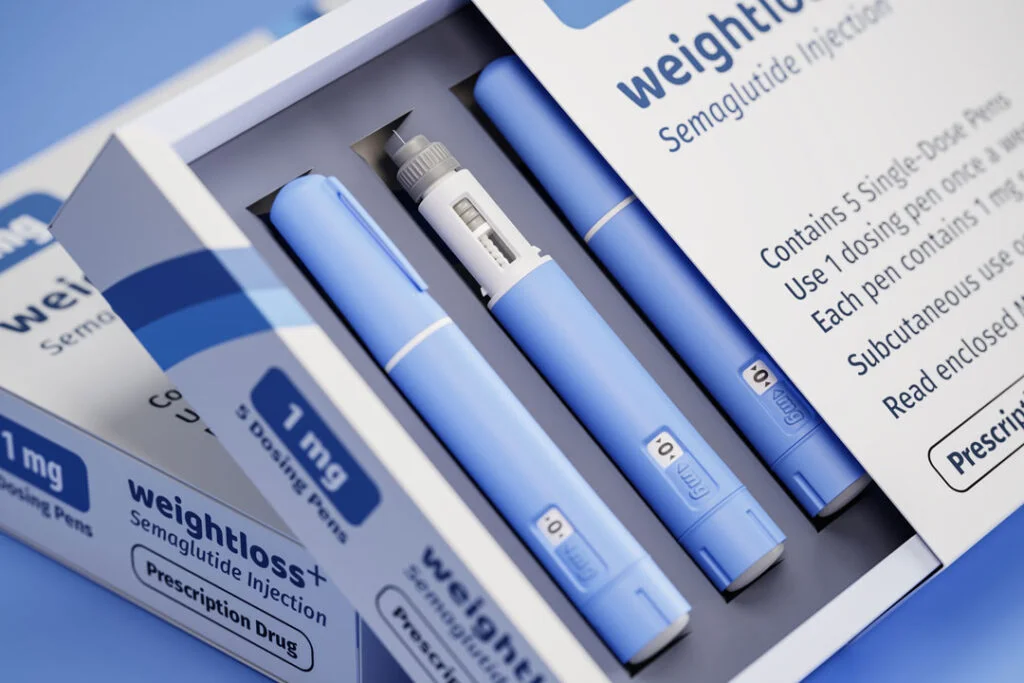
It seems like every month there’s a new study that suggests that weight loss drugs like Ozempic might help treat health conditions beyond obesity, such as sleep apnea. Could these findings provide a new way for millions of Americans to access weight loss drugs?
The demand for weight loss drugs has soared in recent years, so this might be big news for those who are seeking the drug but are unable to qualify under the drug’s initial requirements for a prescription.
This is because recent research has shown that weight loss drugs like Zepbound and Ozempic might help treat other conditions, which could broaden the number of people who qualify for weight loss drugs.
Why Might People With Sleep Apnea Qualify for Weight Loss Drugs?
Sleep apnea, a condition where one stops and starts breathing in their sleep, is very common. In fact, over 30 million Americans have obstructive sleep apnea (OSA) according to the American Medical Association.
This could mean that millions of Americans might be able to access the weight loss drug if its uses are officially expanded to treat sleep apnea by the Food and Drug Administration (FDA).
Right now the main treatment for the sleep disorder is a CPAP machine, which can be inconvenient for users at times. So, there have been many studies to find a potential drug to more easily treat the condition.
“Many trials have shown an improvement in sleep apnea symptoms with weight loss in obese patients,” Dr. Luke Twelves, medical director at Lindus Health, tells Sleepopolis.
One recent study conducted by Eli Lilly (one of the drug’s manufacturers) found that patients with obesity who took the weight loss drug, Zepbound, for a year saw an almost 60 percent decrease in their sleep apnea symptoms. (1)
Dr. Ron Grunstien, a sleep medicine professor who helped with the Lilly study, told The Wall Street Journal “You could argue this is just as important as the discovery of CPAP therapy 40 odd years ago,” about the study’s findings. (2)
Eli Lilly has recently applied with the FDA to expand the use of its weight loss drug, Zepbound, to include sleep apnea treatment. However, an approval (if issued), is not expected until the end of the year.
While it’s not official yet, representatives at Eli Lilly are hopeful that weight loss drugs can soon be used to treat other conditions. If approved, it could mean that thousands of Americans seeking one of the weight loss drugs might be able to get their hands on a highly coveted prescription.
“It builds this wall of evidence,” Derek Asay, senior vice president of government strategy and federal accounts at Lilly told The Wall Street Journal. “It helps give that reason to believe there’s more than weight loss here.” (2)
How is Obesity Related to Sleep Apnea?
Since sleep apnea symptoms often happen when fat around the neck and throat blocks airways, reducing fat in these areas might help reduce symptoms.
“Obese individuals are at a higher risk of developing sleep apnea, and chronic sleep apnea can, in turn, exacerbate obesity. Therefore, many people with sleep apnea and accompanying obesity may be offered weight-loss drugs,” said Dr. Samuel Sarmiento, physician and medical contributor for Drugwatch.
It seems kind of self-explanatory, but this is why researchers first explored using weight loss drugs to treat sleep apnea to get rid of excess fat in hopes that this would help those breathe better during sleep.
What Does This Mean for Non-Obese People with Sleep Apnea?
While the potential expansion of weight loss drugs to treat sleep apnea could be good news to those who are obese and have sleep apnea, it’s still up in the air as to how these drugs could affect non-obese people with the same condition.
This means that 20 percent of those with sleep apnea who are not obese might not be able to access weight loss drugs if they are approved to treat sleep apnea. (3)
“What is not so clear is the depth of evidence of treatment for these very specific cases and the benefits of weight loss in non-overweight patients even if they have excessive neck fat, for example, would need to be subjected to further research,” says Dr. Twelves.
Weight loss drugs reduce one’s appetite, resulting in weight loss. Considering this, it could potentially result in unhealthy levels of weight loss for those who are not obese.
“There is no reason why ‘thin’ people with sleep apnea should take weight loss drugs. This may put them at risk of experiencing adverse effects from these drugs without any meaningful improvement in sleep apnea. In this case, sleep apnea may be related to other factors that should be evaluated by a health care professional,” adds Dr. Sarmiento.
Weight loss drugs might help some with sleep apnea, however, it’s not a one-size-fits-all treatment.
What Other Conditions Might Be Treated by Weight Loss Drugs?
The use of weight loss drugs could soon be expanded to help treat other conditions like substance abuse addictions and cardiovascular diseases, which could mean that even more Americans might qualify for a weight loss drug prescription in the future.
One study found that those with cardiovascular disease who took the weight loss drug, Wegovy, saw a 20 percent reduced risk of heart attack and stroke. (4)
As a result, the FDA approved Wegovy prescriptions to reduce heart attack risk in addition to its initial weight loss purpose. Many are hoping that this same process will happen to weight loss drugs like Ozempic for sleep apnea.
Not only that, recent research suggests that weight loss drugs might also help treat those with substance abuse addictions.
One study found that those with an alcohol addiction who took weight loss drugs saw a significant decrease in their urge to drink, putting them at low risk for addiction after taking the drug. (5)
Weight loss drugs haven’t officially been approved to treat substance addictions or sleep apnea just yet. As usual, more research is needed until people can get a prescription for Ozempic to treat other conditions besides weight loss.
Sources
1. Malhotra A, Grunstein RR, Fietze I, et al. Tirzepatide for the Treatment of Obstructive Sleep Apnea and Obesity. New England Journal of Medicine. Published online June 21, 2024. doi:https://doi.org/10.1056/nejmoa2404881
2. Loftus P. The new holy grail for weight-loss drugs is sleep apnea. July 15, 2024. Accessed July 15, 2024. https://www.wsj.com/health/healthcare/sleep-apnea-weight-loss-drugs-00373f21
3. Antonaglia C, Passuti G. Obstructive sleep apnea syndrome in non-obese patients. Sleep and Breathing. Published online July 29, 2021. doi:https://doi.org/10.1007/s11325-021-02412-1
4. Commissioner O of the. FDA Approves First Treatment to Reduce Risk of Serious Heart Problems Specifically in Adults with Obesity or Overweight. FDA. Published 2024. https://www.fda.gov/news-events/press-announcements/fda-approves-first-treatment-reduce-risk-serious-heart-problems-specifically-adults-obesity-or#:~:text=Wegovy%20significantly%20reduced%20the%20risk
5. The University of Oklahoma and Oklahoma State University collaboration finds semaglutide treatment is associated with remarkable reductions in Alcohol Use Disorder symptoms. EurekAlert! Accessed July 16, 2024. https://www.eurekalert.org/news-releases/1009292
Twelves, Luke. Personal Interview. July 15, 2024.
Sarmiento, Samuel. Personal Interview. July 16, 2024.


























